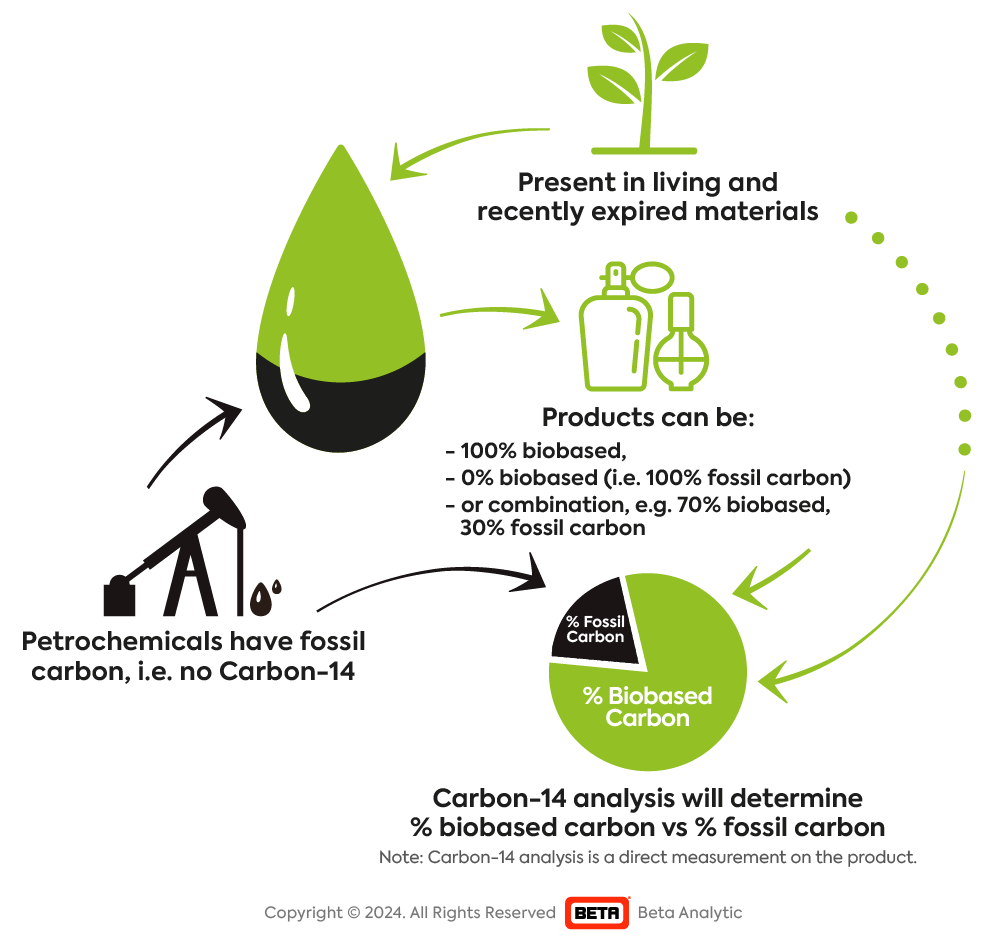Measuring % Biobased Carbon versus % Fossil Carbon in natural ingredients
A 100% Biobased Carbon result means that the material analyzed is all natural and has no evidence of synthetic adulterants or any petrochemical-derived substances.
Biobased carbon testing is done by Carbon-14 analysis. Products that are 100% biobased are 100% sourced from plants, animals or microbiological materials. Since carbon-14 is only present in living or recently expired material, Carbon-14 testing using Accelerator Mass Spectrometry (AMS) is the most effective method in confirming if there are petrochemical-derived synthetic adulterants in a product claiming to be 100% naturally sourced.
What does “biobased” mean?
“Biobased” means containing organic carbon of renewable origin like agricultural, plant, animal, fungi, microorganisms, marine, or forestry materials living in a natural environment in equilibrium with the atmosphere, according to the ASTM D6866-22 analytical standard.

Products regularly accepted by Beta for Carbon-14 analysis include cosmetics, curcumin, essential oils, flavors, and food & dietary supplements.
For reliable, accurate and fast natural vs synthetic testing, choose Beta Analytic.
Carbon-14 Analysis vs Other Authenticity Testing Methods
Beta Analytic’s Peppermint Oil Case Study
Turmeric Case Study: Verifying “Natural” Claims by Carbon-14 and HPLC Analyses
Page last updated: January 2024